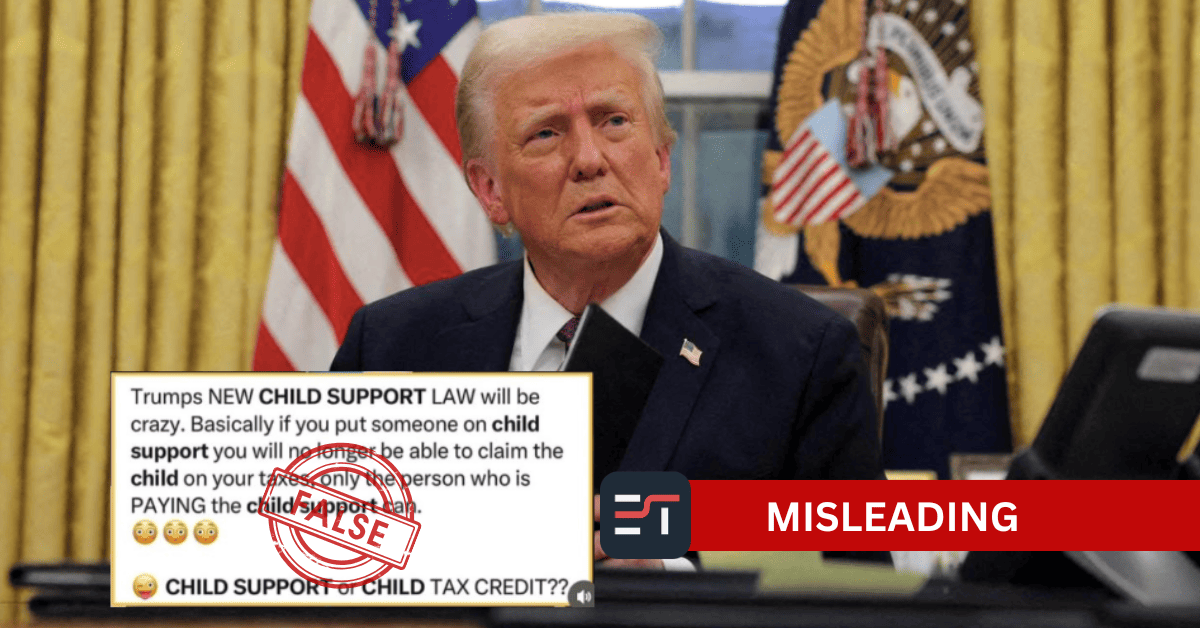Doualemn Case: TikTok Influencer’s Role in Franco-Algerian Crisis

The Doualemn case has emerged as a watershed event in the continuing Franco-Algerian diplomatic crisis, gaining global attention for its combination of social media influence, judicial battles, and international politics. Boualem Naman, a 59-year-old Algerian TikTok influencer known as Doualemn, was sentenced to a 5-month suspended prison term by the Montpellier Criminal Court on March 6, 2025, for public provocation of a crime. His incendiary video attacking an Algerian opposition figure not only sparked judicial action, but also heightened tensions between France and Algeria, raising concerns about deportation procedures, diplomatic protocols, and the role of social media in international relations.
This article investigates the Doualemn dispute, including its origins, judicial proceedings, and broader ramifications for France-Algeria bilateral ties. We’ll look at how a single TikTok video became a diplomatic flashpoint, the complexities of Algerian deportation concerns, and the interactions of international treaties like as the 1944 Chicago Convention and the 1994 bilateral agreement. This comprehensive guide, which focuses on semantic SEO and EEAT principles (Expertise, Authoritativeness, and Trustworthiness), strives to provide readers with clear, actionable insights into this multidimensional subject.
The Origins of the Doualemn Controversy: A TikTok Video That Ignited Tensions
Who Is Boualem Naman, aka Doualemn?
Boualem Naman, also known as Doualemn, is a 59-year-old Algerian maintenance worker living in France with a large TikTok following of 138,000. His work frequently appeals to Algerian expats, combining cultural critique with personal tales. However, his January 2025 TikTok video asking for the “severe correction” of an Algerian opposition figure marked a watershed moment. The video’s content, perceived as a call to violence, triggered immediate action from French authorities, resulting in his arrest and subsequent legal fights.
The Video That Sparked Outrage
Doualemn posted a video in early January 2025, calling his followers to physically approach an identifying Algerian opposition figure living in France. The Montpellier Criminal Court later determined that his use of language such as “severe correction” constituted a public provocation to commit a crime, rejecting his assertion that the remarks were funny. The court president stated, “These could not be humorous terms,” emphasizing the gravity of the incitement to violence. This act not only broke French law, but also caught Algeria’s notice, hurting French-Algerian ties.
Why Did This Video Matter?
The Doualemn TikTok controversy went beyond a simple legal problem, becoming a symbol of deeper Franco-Algerian tensions. France’s quick response, suspending Naman’s resident card and pursuing deportation, collided with Algeria’s unwillingness to accept him, citing international treaties such as the 1944 Chicago Convention and the 1994 bilateral agreement. This standoff highlighted ongoing disputes about Algerian individuals’ deportation, diplomatic protocol violations, and travel limitations on Algerian dignitaries, laying the groundwork for a larger diplomatic crisis.
Legal Battles and the Montpellier Criminal Court’s Ruling
The 5-Month Suspended Sentence: What It Means
On March 6, 2025, the Montpellier Criminal Court condemned Doualemn to a 5-month suspended prison sentence for public incitement to commit a crime. A suspended sentence means Naman avoids immediate imprisonment but faces jail time if he reoffends within a certain time frame. The prosecution wanted a six-month suspended sentence, but Naman’s lawyer, Jean-Baptiste Mousset, argued for an acquittal, arguing the footage was misconstrued. The court’s decision weighed the severity of the encouragement to violence against Naman’s absence of prior violent acts.

Doualemn’s Defense and Appeal Plans
During the hearing on February 24, 2025, Naman showed contrition, saying, “I got carried away” and “I’m sincerely sorry.” His legal team, lead by Marie David-Bellouard, claimed that the case was “blown out of proportion” for political reasons, primarily by French Interior Minister Bruno Retailleau. The defense has declared that it intends to appeal the criminal court’s ruling, hoping to overturn the conviction or decrease the penalty. This appeal is expected to put the Doualemn case in the spotlight, further impacting France-Algeria ties.
The Role of the Hérault Expulsion Commission (Comex)
In addition to the criminal prosecution, Doualemn faced deportation proceedings. The Hérault Expulsion Commission (Comex) has examined a request from local authorities to evict Naman on March 5, 2025. On March 12, Comex approved the expulsion, citing his dangerous profile and the public provocation offense. However, previous attempts to deport Naman in January 2025 were unsuccessful when Algeria refused entrance, heightening diplomatic tensions. The Melun Administrative Court later overturned the initial requirement to leave French territory (OQTF), ordering a fair hearing, which prompted the Comex review.
The Franco-Algerian Diplomatic Crisis: A Broader Context
Historical Tensions Between France and Algeria
The Franco-Algerian diplomatic conflict has deep historical origins, dating back to France’s colonial rule in Algeria (1830-1962) and the violent Algerian war of independence. Recent controversies, like as France’s backing for Morocco’s autonomy plan for Western Sahara and the imprisonment of French-Algerian writer Boualem Sansal, have strained relations even further. The Doualemn case represents a microcosm of these tensions, highlighting concerns such as deportation policy, diplomatic protocol violations, and travel limitations.
The 1944 Chicago Convention and 1994 Bilateral Accord
French Interior Minister Bruno Retailleau accused Algeria of breaking international agreements, especially the 1944 Chicago Convention (regulating civil aviation) and the 1994 bilateral treaty (facilitating migration and consular cooperation). These accords entail collaboration in the deportation of citizens, but Algeria’s unwillingness to accept Doualemn and other deportees has prompted France to implement a “graduated response.” This includes travel limitations for Algerian dignitaries and increased border inspections at Roissy Airport, which require diplomatic passport holders to submit mission instructions.
Deportation List of Algerian Nationals: A Growing Concern
Retailleau declared in early March 2025 that it will compile a deportation list of hundreds of Algerian individuals with dangerous profiles. This move is intended to address security concerns in France, specifically encouragement to violence and public provocation offenses. However, Algeria’s lack of cooperation has hindered these attempts, pushing France to escalate measures such as visa restrictions and diplomatic expulsions. The Doualemn case shows the difficulties of enforcing deportation policies amidst international tension.
Social Media’s Role in the Doualemn Controversy
The Power of TikTok Influencers in Shaping Narratives
Doualemn’s case highlights the growing power of TikTok influencers in political and social areas. With 138,000 followers, Naman’s platform magnified his message, turning his call to violence into a public problem. TikTok and other social media sites may quickly turn personal ideas into international disputes, as witnessed in this case. The Montpellier Criminal Court’s decision establishes a precedent for holding influencers responsible for public provocation crimes, raising concerns about social media regulation.
Other Algerian Influencers in the Spotlight
Doualemn isn’t alone. Other Algerian stars, such as Imad Tintin and Youcef A. (Zazou Youssef), have faced judicial action in France for inciting violence or glorifying terrorism via TikTok. Imad Tintin’s trial is set for May 23, 2025, while Youcef A. has got an 18-month prison sentence and a 10-year ban from France. These cases illustrate France’s crackdown on hazardous social media postings, further hurting France-Algeria ties.
Balancing Freedom of Speech and Public Safety
The Doualemn case presents complex considerations about free speech and public safety. While Naman contended that his film was overblown, the court weighed the possibility of violence against his right to free expression. This balance is important in the digital age, where TikTok videos may reach thousands instantaneously. France’s response, which included legal action and deportation measures, is part of a larger campaign to limit security risks posed by social media incitement.
Implications for France-Algeria Bilateral Relations
Travel Restrictions on Algerian Dignitaries
Algeria’s Foreign Affairs Ministry has sharply criticized France’s move to put travel restrictions on Algerian dignitaries, labeling it a “provocation.” These restrictions, which include requiring mission orders at Roissy Airport, are intended to compel Algeria into cooperating on deportation difficulties. However, they risk worsening diplomatic relations, as illustrated by Algeria’s reciprocal expulsion of French diplomats in April 2025.
Expulsion of Diplomats: A Tit-for-Tat Escalation
The Doualemn affair coincided with a number of diplomatic expulsions. Algeria ordered the departure of 12 French embassy staff members within 48 hours in April 2025, citing France’s arrest of an Algerian diplomatic officer involved in the Amir DZ kidnapping. France replied by dismissing 12 Algerian officials, escalating the Franco-Algerian dispute. These activities indicate a retaliatory cycle, with the Doualemn case fueling the flames.

Long-Term Consequences for Bilateral Agreements
The persistent disputes jeopardize the validity of bilateral agreements such as the 1994 deal, which promotes migration and consular cooperation. France’s charges of noncompliance, combined with Algeria’s denial of deportation petitions, may cause these accords to be reevaluated. To avoid future escalation, the Doualemn case emphasizes the importance of both governments working together to handle security issues and diplomatic etiquette.
Expert Insights: Navigating the Doualemn Case and Its Fallout
Legal Perspectives on Public Provocation Crimes
Legal experts regard the Montpellier Criminal Court’s decision as a watershed moment for public provocation crimes in the social media age. The five-month suspended sentence underscores France’s commitment to preventing incitement to violence, especially when it is reinforced by TikTok influencers. However, the appeals process will put the court’s understanding of free expression vs public safety to the test, with the potential to set new legal precedents.
Diplomatic Strategies for De-escalation
Diplomats argue that resolving the Franco-Algerian dispute needs both countries to emphasize discussion over retaliation. The Doualemn case could act as a spark for discussions about deportation rules and diplomatic protocol. Establishing clearer parameters under the 1944 Chicago Convention and the 1994 bilateral treaty could help to avoid future disputes and build a more cooperative partnership.
Social Media Regulation in the Digital Age
The Doualemn controversy highlights the importance of strong social media laws. Governments around the world are dealing with how to police TikTok material without intruding on free expression. France’s strategy, which focuses on hazardous profiles and enforces public provocation laws, serves as an example, but it also risks alienating communities, as evidenced by Algeria’s response to deportation attempts.
Conclusion: The Doualemn Case as a Turning Point
The Doualemn issue is more than just a legal battle; it exemplifies the intricate interplay between social media influence, international law, and diplomatic relations. Boualem Naman’s five-month suspended sentence and ongoing deportation battles have heightened Franco-Algerian relations, forcing both countries to juggle security concerns, diplomatic norms, and bilateral accords. As the appeal process proceeds and diplomatic conversations continue, the case is likely to determine the future of France-Algeria ties as well as worldwide TikTok influencer regulation
FAQs:
1. Who is Doualemn?
Answer: Doualemn, or Boualem Naman, is a 59-year-old Algerian TikTok influencer sentenced to a 5-month suspended term for public provocation after a January 2025 video inciting violence, sparking a Franco-Algerian diplomatic crisis.
2. What is the Doualemn case?
Answer: The Doualemn case involves Boualem Naman’s TikTok video urging violence, leading to a 5-month suspended sentence and failed deportation attempts, escalating France-Algeria tensions over diplomatic protocols.
3. Why was Boualem Naman sentenced?
Answer: Naman got a 5-month suspended sentence on March 6, 2025, for public provocation after his TikTok video called for violence against an Algerian opposition figure, ruled as incitement by the Montpellier Court.
4. How did the Doualemn case affect France-Algeria relations?
Answer: The case worsened Franco-Algerian relations as Algeria refused Naman’s deportation, prompting France’s travel restrictions and deportation list, leading to mutual diplomatic expulsions in April 2025.
5. What role did TikTok influencers play?
Answer: Influencers like Doualemn, Zazou Youssef, and Imad Tintin fueled tensions with incendiary TikTok content, facing French legal action for incitement, straining France-Algeria diplomatic ties.
6. Why did Algeria refuse Doualemn’s ‘Algerian War’ of Independence?
Answer: Algeria refused Doualemn’s deportation on January 9, 2025, citing a territorial ban, escalating tensions. France placed him in detention, and the Hérault Expulsion Commission approved his expulsion on March 12, 2025.
7. What are the 1944 Chicago Convention and 1994 bilateral accord?
Answer: The 1944 Chicago Convention governs aviation repatriation, and the 1994 bilateral accord aids France-Algeria migration. Algeria’s refusal to honor them in the Doualemn case led to France’s travel restrictions.
8. What is the deportation list of Algerian nationals?
Answer: France’s March 2025 deportation list targets hundreds of Algerian nationals with dangerous profiles, like Doualemn, to address security concerns, but Algeria’s non-cooperation deepened the diplomatic crisis.
9. What happened to other Algerian TikTok influencers?
Answer: Zazou Youssef got an 18-month sentence, Imad Tintin awaits trial, and Sofia Benlemmane faces charges for hate speech, reflecting France’s crackdown on incendiary TikTok content.
10. How does the Doualemn case impact social media regulation?
Answer: The case highlights social media regulation challenges, with Doualemn’s sentence setting a precedent for TikTok influencer accountability, prompting global debates on content moderation.








